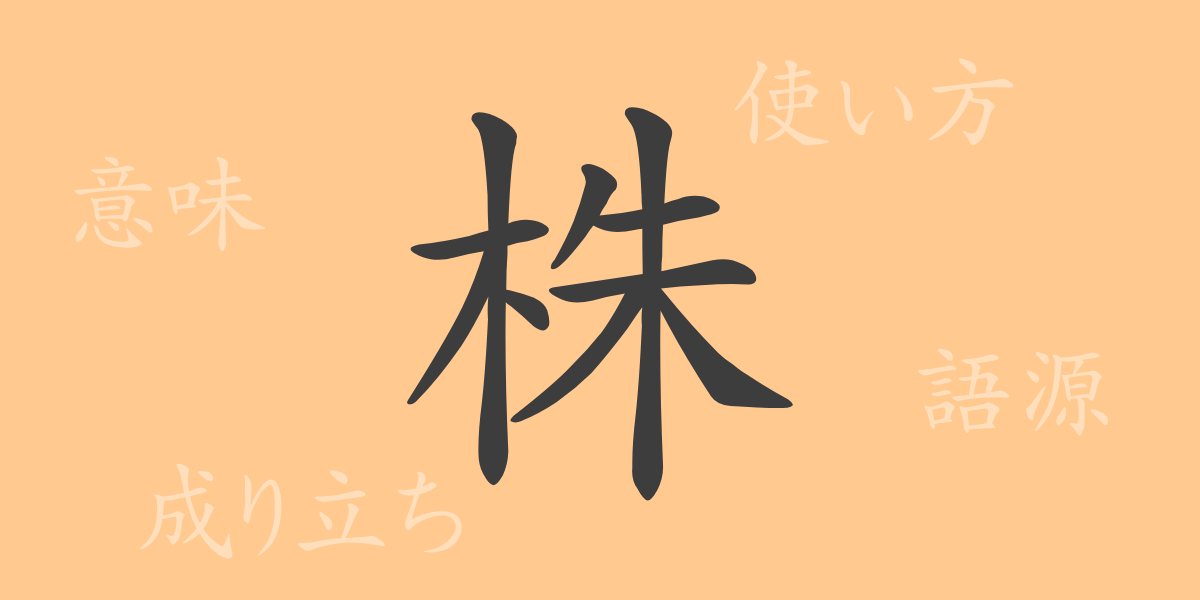In the rich world of Japanese expression, kanji add color to our culture with their deep meanings and historical significance. The kanji for “stock” (株)(Kabu), pronounced “kabu” (かぶ), is widely used from economics to everyday conversation, and its presence is closely intertwined with our lives. This article explores the profound world of “kabu,” from its etymology to modern usage, and even in idioms and proverbs.
The Origin of “Kabu” (株)(Kabu)
The kanji “kabu” (株)(Kabu) symbolically represents the “root” or “base” of a tree, depicting the way a tree emerges from the ground. Historically, it was used to refer to the base of a tree, and from there, it came to mean “foundation” or “starting point.” It has also been used to mean the “capital” in business or property, leading to its modern usage in terms like “stock” or “shares.”
The Meaning and Usage of “Kabu”
“Kabu” (株)(Kabu) is a polysemous kanji with a wide range of uses. Most commonly, it refers to “shares” or “stock,” denoting a part of a company’s ownership and is widely used in the economic sphere. It is also used in everyday language to refer to the base of a plant or the origin or starting point of something. Additionally, in phrases like “raising one’s stock” (株を上げる) (Kabu-wo-age-ru)or “lowering one’s stock” (株を下げる)(Kabu-wo-sage-ru), it is used to express a person’s reputation or honor.
How to Read “Kabu,” Stroke Count, and Radical
The kanji “kabu” (株)(Kabu) is included in the list of commonly used kanji in Japan, and understanding its reading and structure is important for learning Japanese.
- Reading: The on’yomi reading is “shu” (シュ), and the kun’yomi reading is “kabu” (かぶ).
- Stroke Count: It has a total of 10 strokes.
- Radical: It belongs to the “tree” (木)(Ki) radical category, which includes kanji related to trees and wood.
Idioms, Phrases, and Proverbs Using “Kabu” and Their Meanings
There are many idioms, phrases, and proverbs that include “kabu” (株) in the Japanese language. For example, “pulling out the stock” (株を抜く) (Kabu-wo-nu-ku)means to outdo others and gain a benefit, and “dividing the stock” (株を分ける)(Kabu-wo-wa-keru) means to distribute profits or rights. In proverbs, “watering the stock” (株に水を注ぐ)(Kabu-ni-mizu-wo-soso-gu) carries the instructive meaning of nurturing growth through effort or support.
Conclusion on “Kabu”
The meanings embedded in a single kanji character can vary greatly depending on how it is used. “Kabu” (株) is no exception, with its range of use extending from economics to everyday conversation, and even as a teaching tool. Through this article, we hope you have gained an understanding of the multifaceted nature of “kabu” and have appreciated the rich world of Japanese language expression.

























